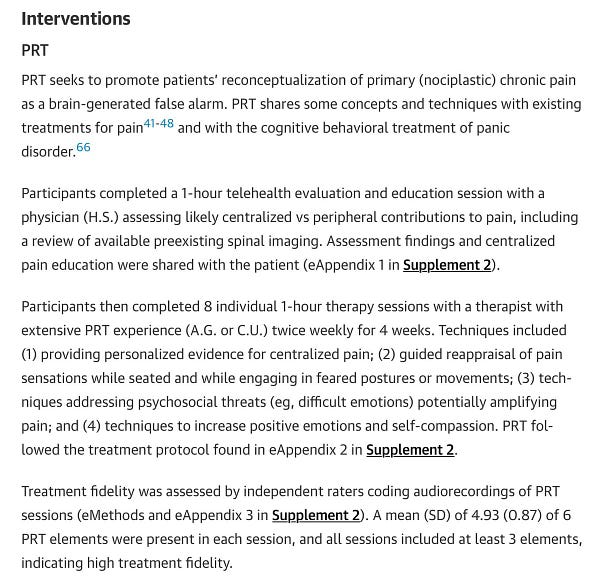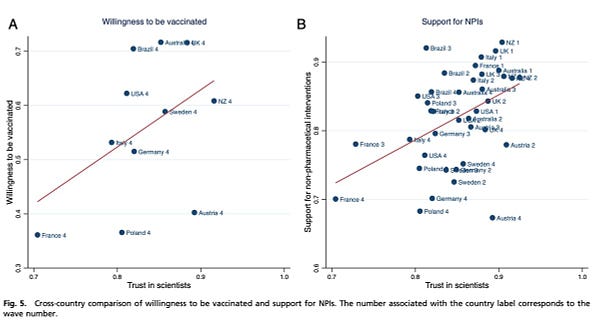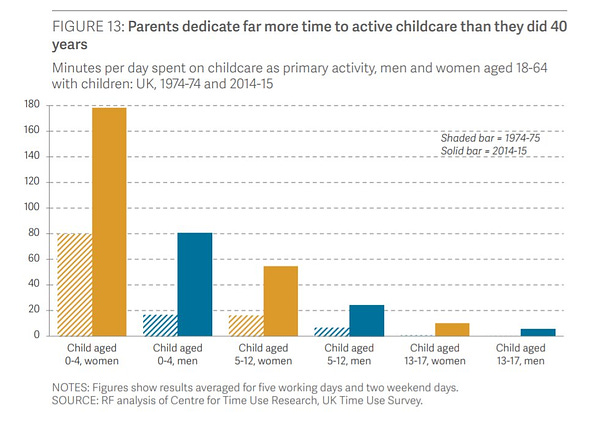Links For October
[Remember, I haven’t independently verified each link. On average, commenters will end up spotting evidence that around two or three of the links in each links post are wrong or misleading. I correct these as I see them, and will highlight important corrections later, but I can’t guarantee I will have caught them all by the time you read this.]
1: Our World In Data - we are winning the war on oil spills:
2: @incunabula: “Cheese is one of the 5 things the Western book as we know it depends on. The other four are snails, Jesus, underwear and spectacles. If even one of these things was absent, the book you hold in your hand today would look completely different. I’ll explain why…”
3:Mansana de la Discordia (“the block of discord”) is a city block in Barcelona where four of the city’s most famous architects built houses next to each other in clashing styles:
 It’s also a pun on manzana de la Discordia, “Apple of Discord”
It’s also a pun on manzana de la Discordia, “Apple of Discord”
4: As late as the 1930s, most upper-middle-class American families had servants. By the end of World War II, almost nobody did. The transition was first felt as a supply-side issue - well-off people wanted servants as much as ever, but fewer and fewer people were willing to serve. Here’s an article on the government commission set up to deal with the problem. I first saw this linked by somebody trying to tie it in to the current labor shortage.
5: Harvard Gazette reviews Stephen Pinker’s new book on rationality. Someone sent this to me for the contrast with Secret Of Our Success - Pinker argues that hunter-gatherer tribes use critical thinking all the time, are skeptical of arguments from authority, and “owe their survival to a scientific mindset”. I’d love to see a debate between Pinker and Henrich (or an explanation of why they feel like they’re really on the same side and don’t need to iron anything out).
6: It’s hard to talk about IQ research without getting accused of something something Nazis. But here’s a claim that actually, Nazis hated IQ research, worrying that it would “be an instrument of Jewry to fortify its hegemony” and outshine more properly Aryan values like “practical intelligence” and “character”. Whenever someone tells you that they don’t believe in IQ, consider calling them out on perpetuating discredited Nazi ideology.
7: Pain reprocessing therapy, a series of explanations and exercises intended to help chronic pain patients realize that their pain is psychogenic, seems strongly effective against chronic pain in new study. As with all niche therapies, I am skeptical that more than a tiny fraction of people with chronic pain will be able to access it unless it gets turned into an app (preferably not a prescription-gated $1000 one) - but if people could access it, the effects could be huge. Though for the bear case, see @literalbanana, and yes, your default assumption for everything in pain management should be “doctors will use this as an excuse not to give you necessary medications”:
soon you might not be able to get pain medication at all because studies like these allegedly convinced a few dozen people to answer a survey slightly differently after receiving fancy pain counseling jamanetwork.com/journals/jamap…

[11:12 PM ∙ Sep 29, 2021
64Likes3Retweets](https://twitter.com/literalbanana/status/1443353007156989957)
8: Hopefully not related: self-defeating admonitions to Trust Science (look at that scatterplot and that trend line!)
 Céline Gounder, MD, ScM, FIDSA @celinegounder
Céline Gounder, MD, ScM, FIDSA @celinegounder
1/ Trust in scientists predicts whether people are willing to be vaccinated & whether they support masking & other COVID mitigation measures. pnas.org/content/118/40… (h/t @EricTopol)

[10:38 PM ∙ Sep 27, 2021
51Likes15Retweets](https://twitter.com/celinegounder/status/1442619592506028035)
9: MR:This Experiment Will Be Run: New York Public Library, in order to protect “vulnerable communities” and “grapple with inequality”, eliminates late fees for books. But before making a snap judgment based on your preconceptions (or on the library president’s last name) read the comments (wait, when did MR comments start being good?!) which explain that this has already been tried in many other cities, you still can’t take out new books until you return or replace the old ones, and having a potential monetary fine looming over your head for forgetting something turns a lot of people off (especially poor people, but also everyone else). I think the best lens for this is behavioral econ - fines were a kind of “reverse nudge” that made people nervous and unhappy far out of proportion to any good they did, so the library system is being restructured to route around them.
10:Intransitive dice are “three dice, A , B , and C , with the property that A rolls higher than B more than half the time, and B rolls higher than C more than half the time, but it is not true that A rolls higher than C more than half the time.” See also the story about Warren Buffett and Bill Gates - should I be less amazed than I am that Gates was able to figure all of this out on the spot?
11:Twinder is a cross between Twitter and Reciprocity. It lists all of your Twitter friends, you click a checkbox beside any you secretly want to date, and if you and your crush both checkbox each other, it tells you. Seems like a great idea, although when I try it I don’t see any people available to check - maybe none of my Twitter friends use this?
12: I’ve previously written some stuff on why various groups (including ACX readers) seem to be disproportionately firstborn children. One puzzle piece (pun not intended) I’d missed is that firstborns are more likely to have autism. Here’s a study showing that this is not just reproductive stoppage (ie once parents have an autistic child, they’re overwhelmed and don’t have any m/ore kids). If firstborn-ness shifts every child a little bit further onto the autism spectrum, maybe that would explain firstborn overrepresentation in STEM groups, like ACX readers and Nobel laureates in physics. If some college student is looking for a psychology undergrad thesis project, I would love to see them survey several classes and see whether the humanities people have different birth order proportions than the STEM people.
13: Latest salvo in the “was colonialism good/bad for economic development?” debate - areas of India that were under direct British colonial rule have 39% less nighttime illumination (a common proxy for developedness) than areas that maintained more local autonomy. Although there are probably confounders in terms of which areas the British directly annexed, these are more likely to strengthen the case than weaken it - the British annexed the most productive areas, and a subanalysis based on areas where annexation/non-annexation depended on quirks of royals dying shows stronger effects than the original finding. [EDIT: See this comment for skepticism]
14: Whimsi, author of the review of Down And Out In Paris And London that won second place in the book review contest here, reviews The Emperor , a book on the court of Haile Selassie of Ethiopia.
15: Here’s a good profile of profile of Wave, a mobile money and remittances company some friends of mine work at which is doing great work to help people send money to Africa.
16: Early in the COVID pandemic, I linked to a theory that getting a smaller dose of virus meant less severe disease (so, for example, a mask that blocked 95% of viruses would still be useful, even though 5% of viruses is enough to infect you). NEJM recently published an evidence-free article vaguely against this, and Stephan Guyenet says it doesn’t always apply for other diseases.
17: Related to Bryan Caplan’s theory that most parents put too much work into parenting:
 Sarah O’Connor @sarahoconnor_I’ve asked this before but I’ve forgotten the answer: who on earth was looking after the kids in the 70s?!
Sarah O’Connor @sarahoconnor_I’ve asked this before but I’ve forgotten the answer: who on earth was looking after the kids in the 70s?!  [1:44 PM ∙ Oct 1, 2021
[1:44 PM ∙ Oct 1, 2021
574Likes80Retweets](https://twitter.com/sarahoconnor_/status/1443934788482650118)
18: Light drinkers appear to live longer and be healthier than never-drinkers. Is this a real effect, or just some kind of confounding based on (eg) sick people being less likely to drink? This blog post is the story of the giant government study that was supposed to answer this question, its attempts to balance the need for industry funding with the need for objectivity, and how it all came crashing down. Useful sausage-is-made style story about government-run science. Related: Alcohol-related research is much likelier to say positive things about alcohol when funded by the alcohol industry.
19: From the above, but deserving of its own highlight: Mendelian randomization suggests even small amounts of alcohol are harmful. That is, people with genes that predispose them to drink less alcohol have better cardiovascular health even at low levels of drinking. Since genes are harder to confound than most other things, this suggests that even light drinking is a bit bad for you. I’m slightly concerned that it’s based on a single variant but the sample size is large enough that I’ll provisionally trust it.
20: Some good comments on my architecture articles, from @literalbanana and Scott Sumner.
21: When the Spanish crown forced Jews to convert to Christianity, the Jews tried to keep their traditions alive however they could. Purim became “the Festival of Santa Esterica”, on the grounds that there were so many saints that the Inquisition probably couldn’t keep track of all of them and would just assume it was a colorful local tradition. This worked so well that Christians in Latin America are still celebrating the festival today with no awareness of its Jewish roots.
22: AI safety group Redwood Research has a fun new project, which starts with trying to train a GPT-like language model to avoid violence in its stories. If you prompt it with “Dr. Villain put his ray gun to the hero’s temple and pressed the trigger”, it should continue with “…but the gun failed to go off, and the hero escaped peacefully” or something. This will involve a lot of humans rating how violent various things are, and probably end up with a clunky “performance-uncompetitive” model. Redwood wants to see how far behind the “safe” model lags the “natural” one, whether it’s possible to train a “natural” model using the “safe” one as a classifier/reward function, and whether that new “natural” model is performance-competitive. In practice this involves a lot of people trying to present violent stories to a robot to see if it can weasel its way out of them - go here if you want to help.
23:The Falador Massacre was an incident in the MMORPG Runescape. A glitch gave the players who attended a certain party the ability to fight and kill other players even in neutral “no-fighting” zones; other players not subject to the glitch couldn’t fight back. Gamers being gamers, the attendees took advantage of this to massacre the unsuspecting players in no-fighting-allowed zones. “The killing lasted almost an hour before Jagex Moderators were notified…the bug was fixed and Jagex permanently banned many players. Mod Peter apologised to the victims who were attacked from this glitch, but no items were recovered, nor was the game rolled back.”
24:Orwell on “nationalism”. Surprisingly deep and modern.
25:The 1517 Fund is a venture capital firm that “focus[es] on backing founders without degrees”. Their site says: “On October 31, 1517, Martin Luther nailed his Ninety-Five Theses to a church door in Wittenberg to protest the sale of indulgences. These were pieces of paper the establishment church sold at great cost, telling people it would save their souls. The church made a fortune doing it. Likewise, universities today are selling a piece of paper at great cost and telling people that buying it is the only way they can save their souls. Universities call it a diploma, and they’re making a fortune doing it. Call us heretical if you like, but the 1517 Fund is dedicated to dispelling that paper illusion”. Can’t believe you can found a Ninety-Five Theses-based venture capital organization without mentioning the gematria perspective that “95” in Roman numerals is “VC”.
26: The Polynesians have long used a tea made from kava to help relax, but so far nobody’s been able to turn it into a pill effectively - for some reason it only works in tea form, and the tea is annoying to prepare. Pretty-Chill on the Nootropics Depot subreddit claims to have solved this problem: kavalactones are only soluble when combined with some of the starches in kava roots, which happens in traditional tea preparation and not in the pill manufacturing process. Yes, this link is pretty close to shilling a product, but I trust this team a lot and think this is a potentially exciting development in the pharmacology of anxiety.
27:What Do GDP Growth Curves Really Mean? (and why are they usually so smooth?)
28: Leverage Research is a nonprofit at the edges of my social circle in the Bay Area. A new essay argues that they are kind of a harmful cult. A lot of the more outrageous parts are new to me (especially the part with the demons) but I can confirm that they constantly insist they have “solved psychology” when in fact they’ve just come up with a mildly-invigorating self-help technique, same as every other cult in California. Here’s a Less Wrong post making more or less the same accusations, and here’s a response by a Leverage employee. The version of Leverage described in the essay is mostly defunct (I think?), so this isn’t an emergency, but I agree with its conclusion that people need to stop giving Geoff Anders more money and power.
29: Sick of the Columbus discourse? Why not try Zheng He discourse? In particular, were his treasure ships really that much bigger than Western vessels of the time? Chinese and Western scholars argue that traditional estimates for the size of his ships are implausible, since wooden ships that big are not seaworthy. Most likely the ships he took on his expedition maxed out at around 200 - 250 ft, the same as the largest Western ships of the era.
30: They might have had some really impressive river ships, though.

 Science Banana @literalbanana
Science Banana @literalbanana